Display videos
Yes, I'd like to see videos dispalyed.
The home game against Preußen Münster a week later falls victim to the state of the pitch so that Bayer 04 can only play again on 18 January. Eintracht Gelsenkirchen are the hosts to the Werkself at the Südstadion in Gelsenkirchen. Ahead of kick-off, there are worried faces in the Eintracht camp as the home team have to play with three players suffering from flu. The excellent fitness of the Bayer team allows them to play their feared high-tempo game. The Werkself take the lead on 18 minutes with a deflected shot from Fredi Hennecken. The result is settled on 67 minutes when Karl-Heinz Brücken makes it 2-0. The league leaders in the Regional League West can now focus on the highlight in January – a cup tie against Bundesliga league leaders FC Nürnberg.
Preparations for the big match are underway. 12,000 tickets are sold in advance a week before the game. The public address system at the Ulrich Haberland Stadium is refurbished and brought up to the original volume required for a capacity crowd at the stadium. The building control department approves a capacity of 19,000. 300 additional seats are set up in front of the East Stand, albeit uncovered. The price per seat is eight Deutschmarks. The stadium opens at noon two hours before the start of the game and the spectators are entertained with recorded music. 70 police officers are on duty to control the traffic. Fans are advised to park under the autobahn where there is space for 1,500 cars. Fans living near to the Ulrich Haberland Stadium are advised to leave their cars at home.
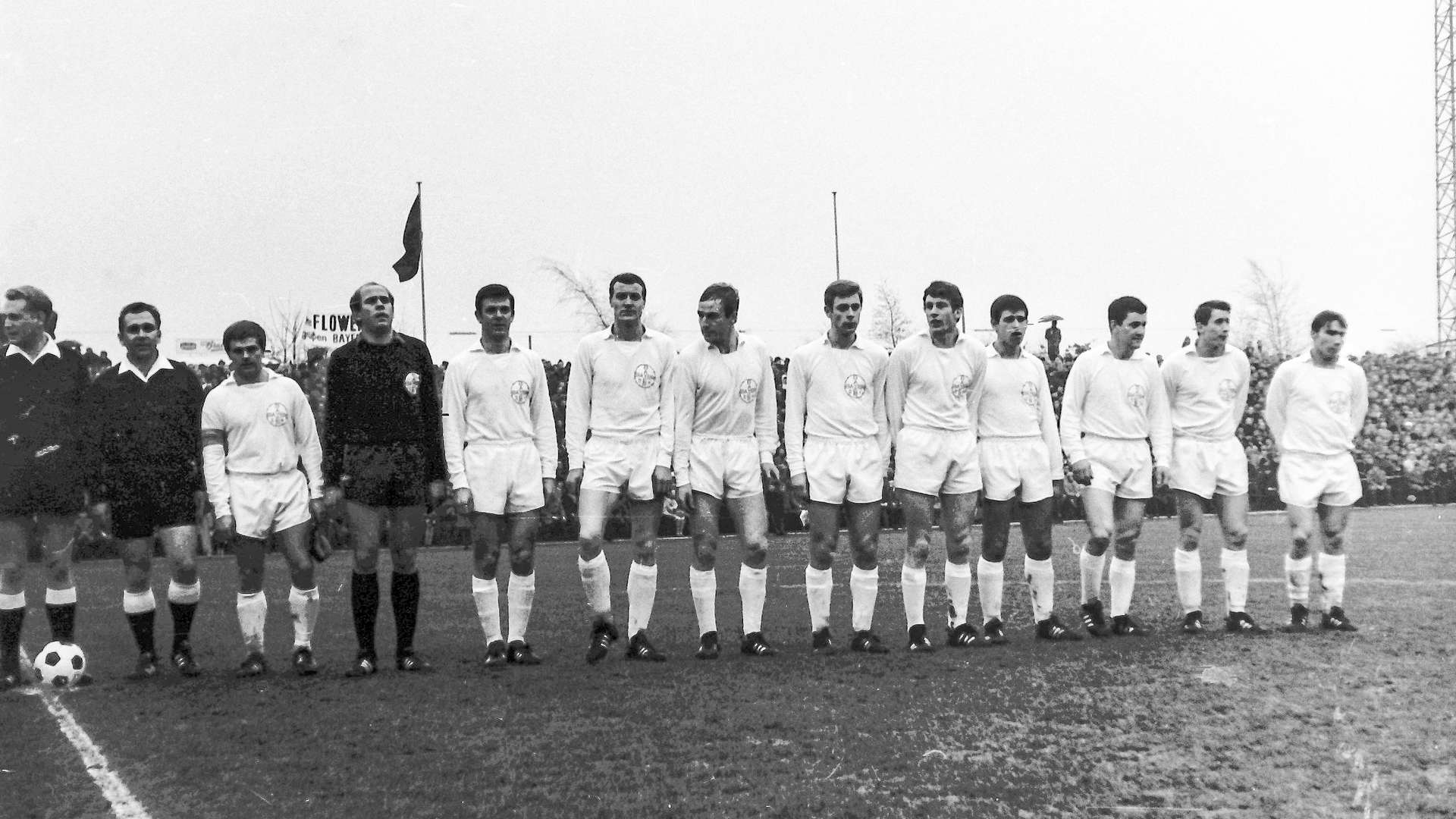

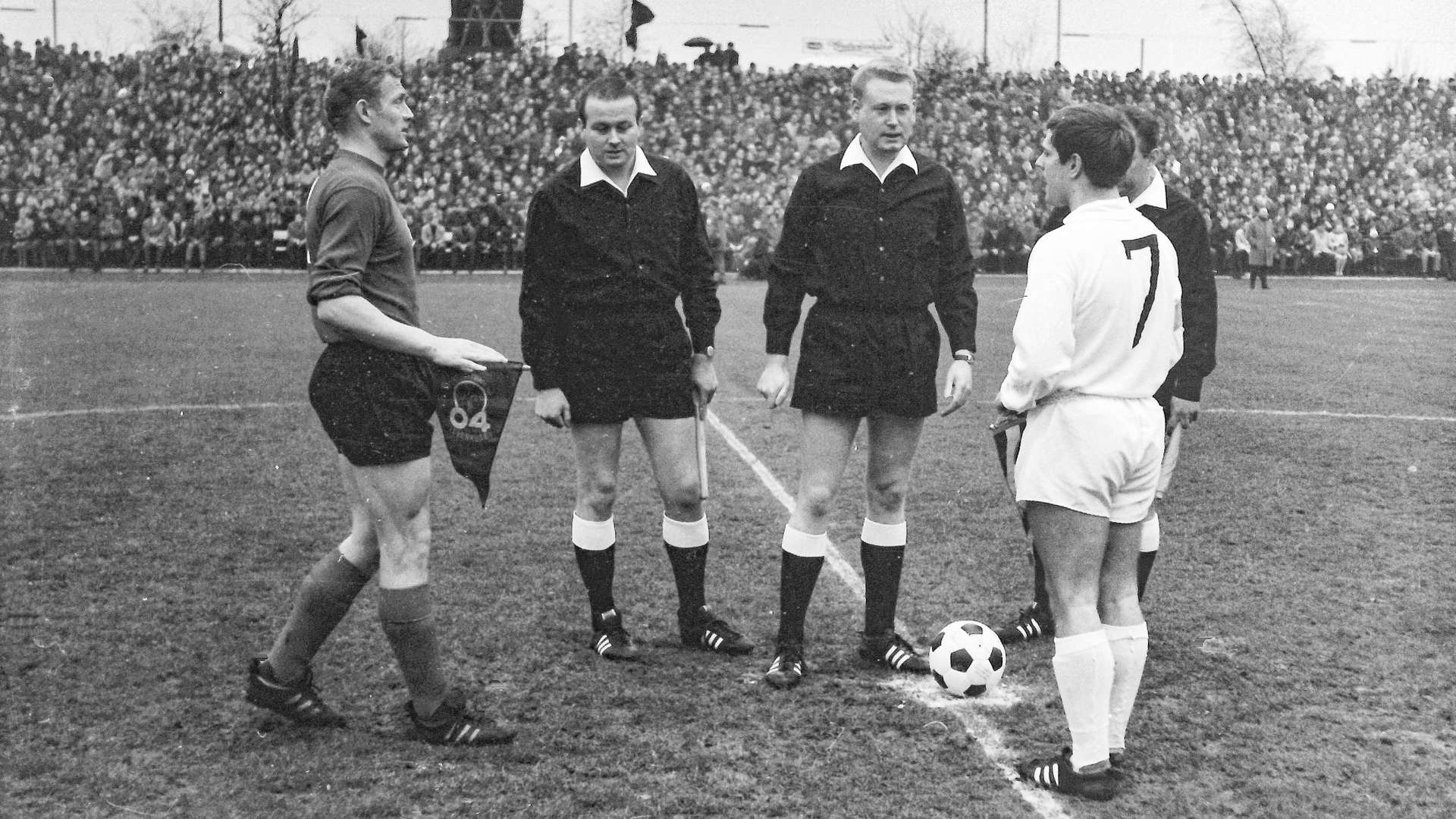
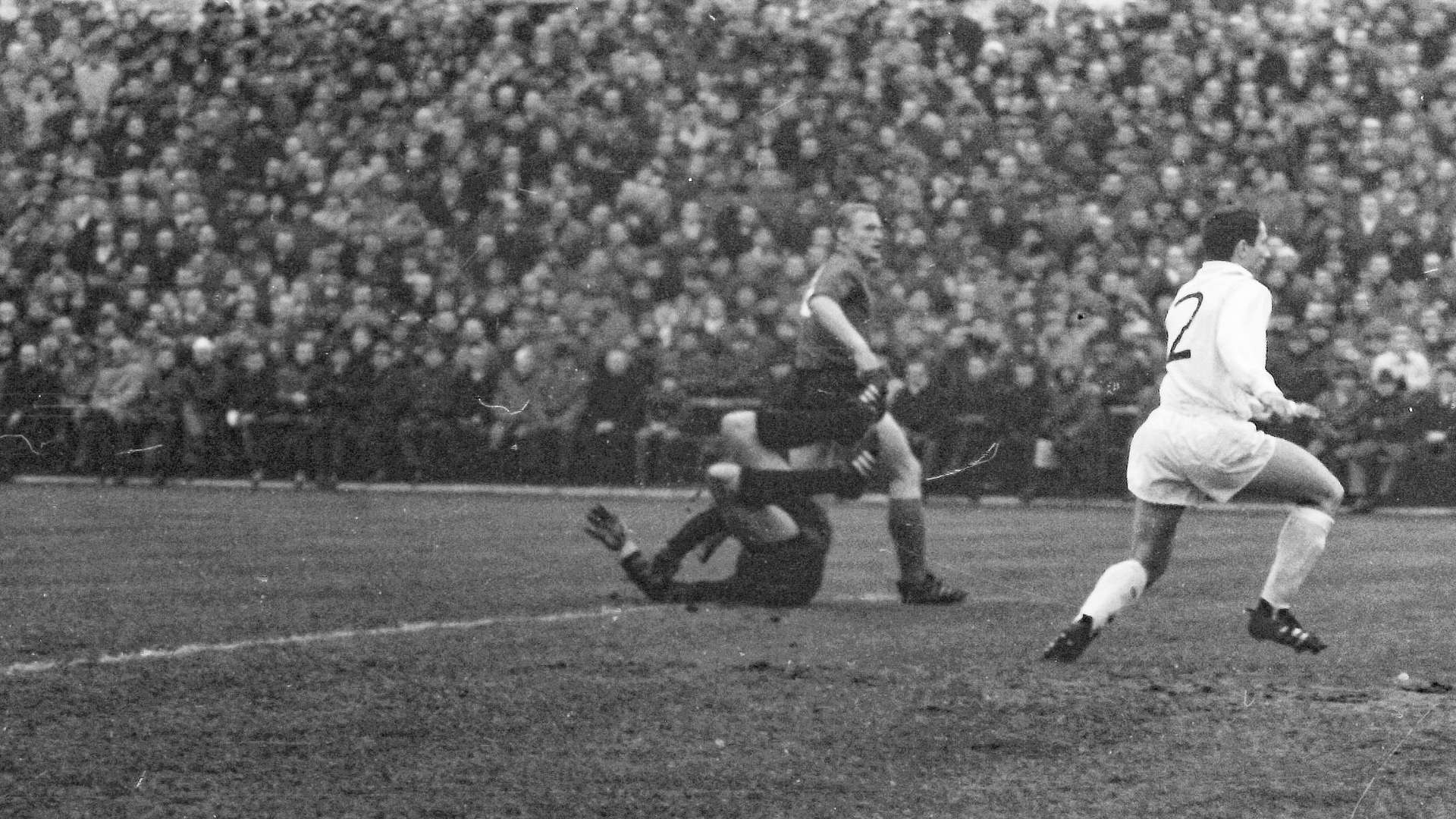
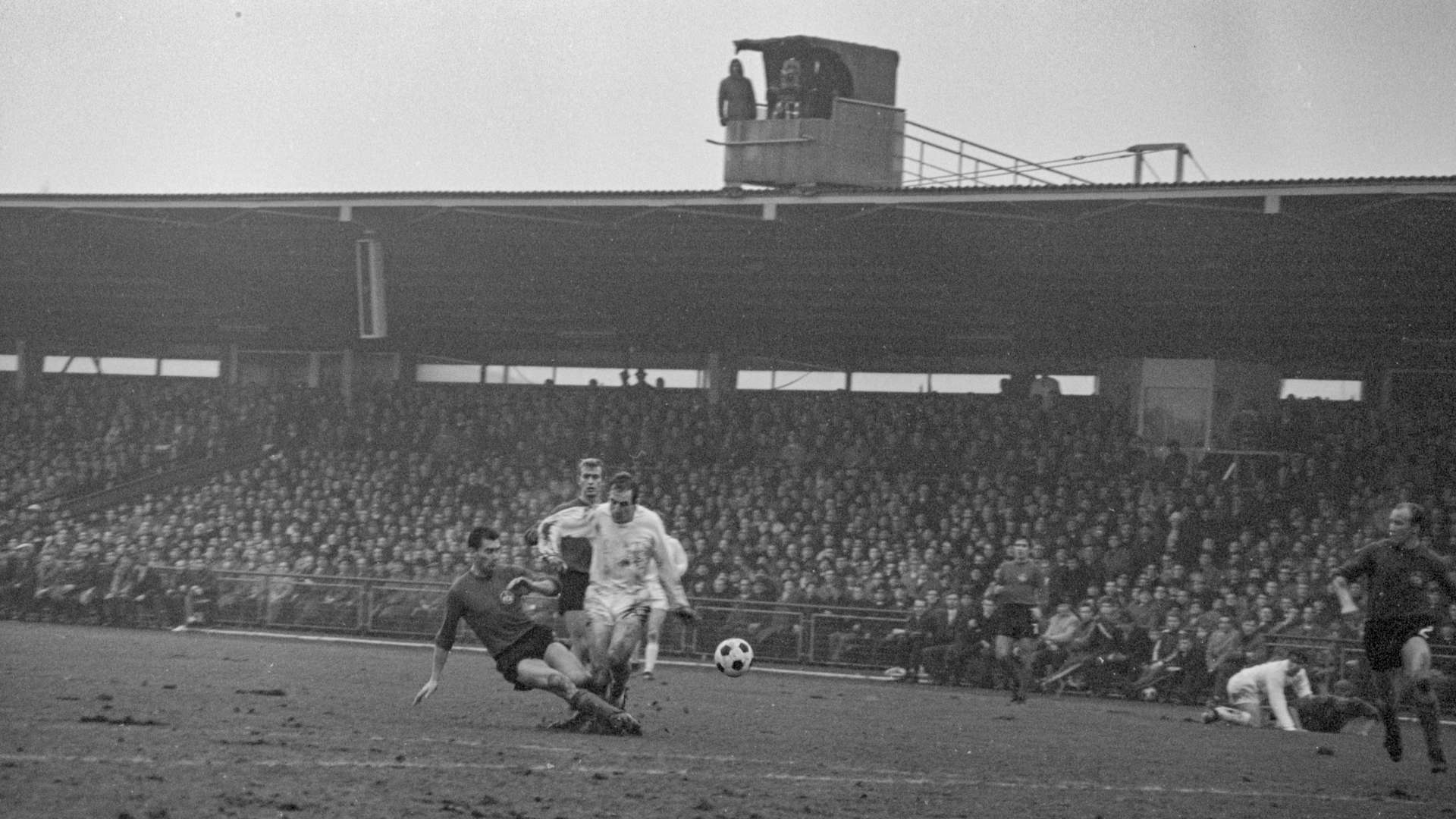
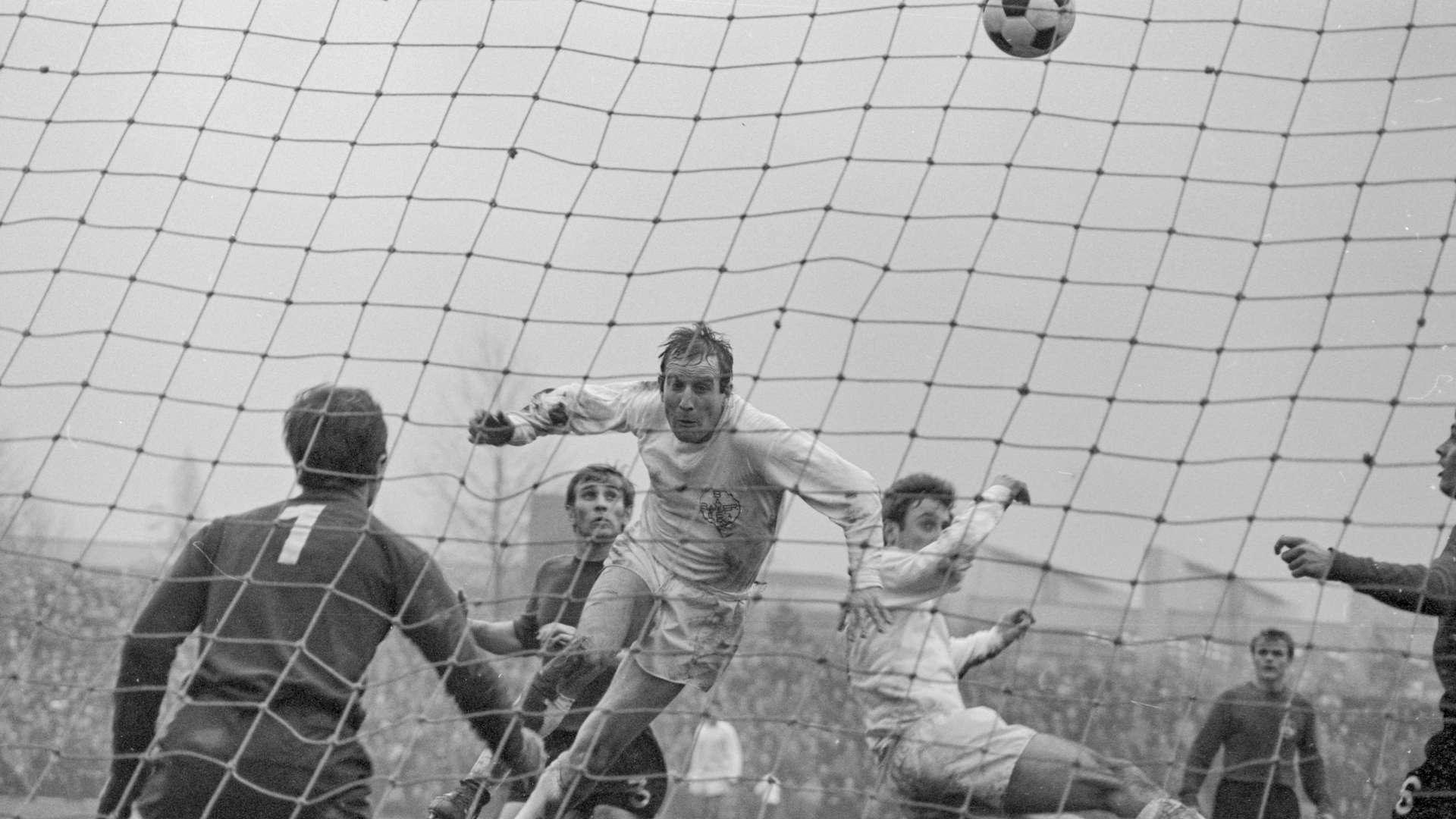
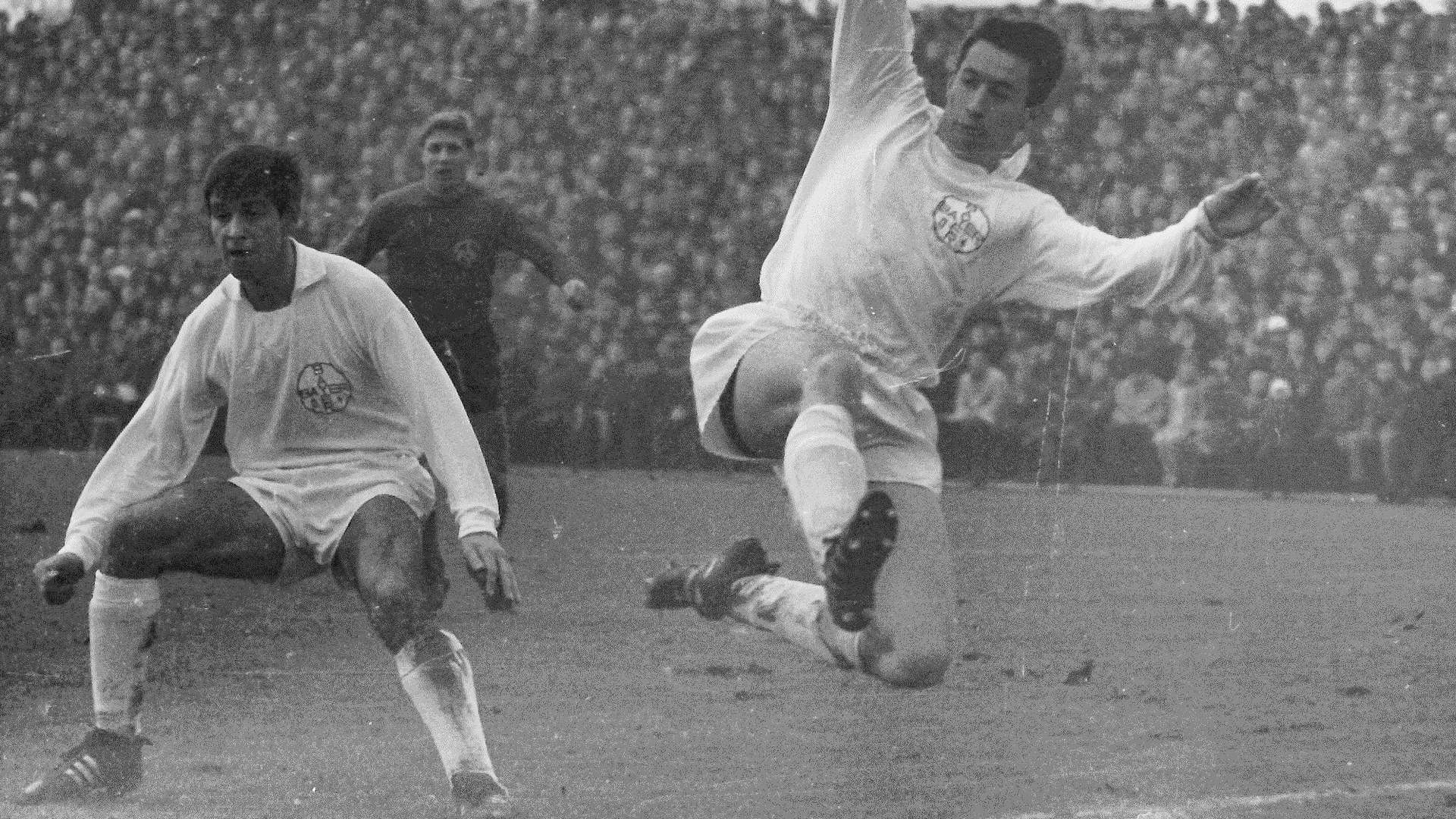
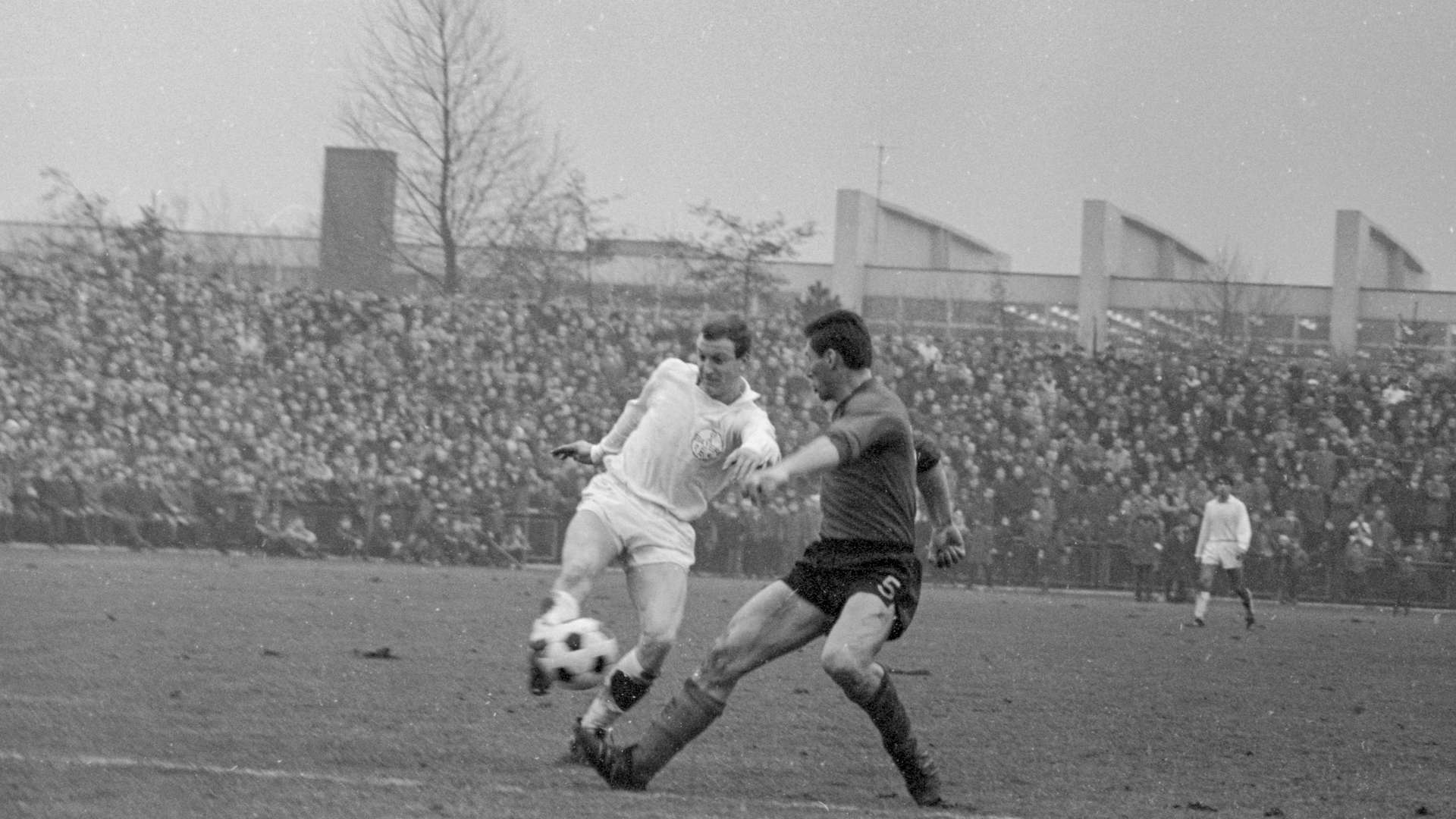
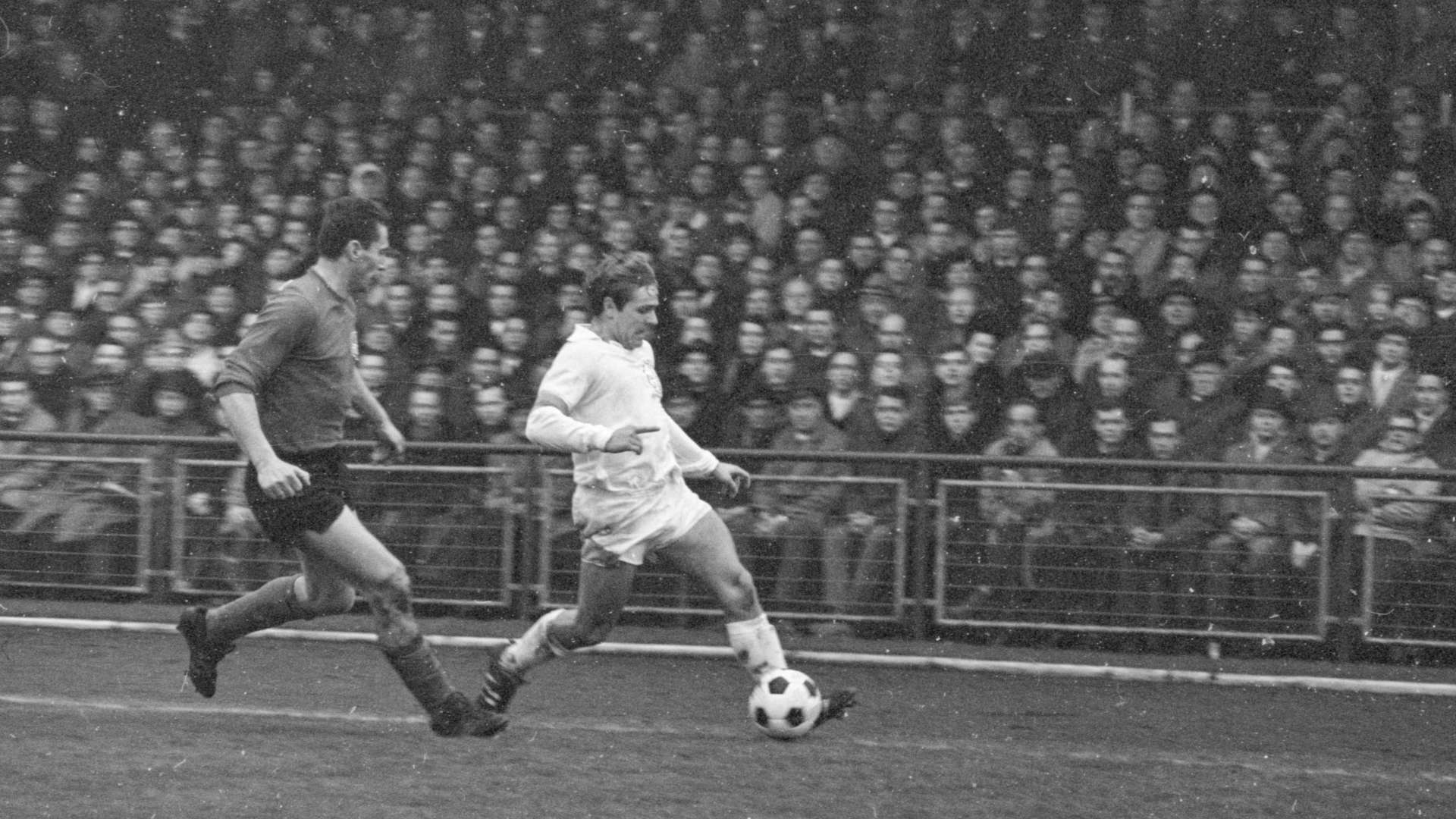
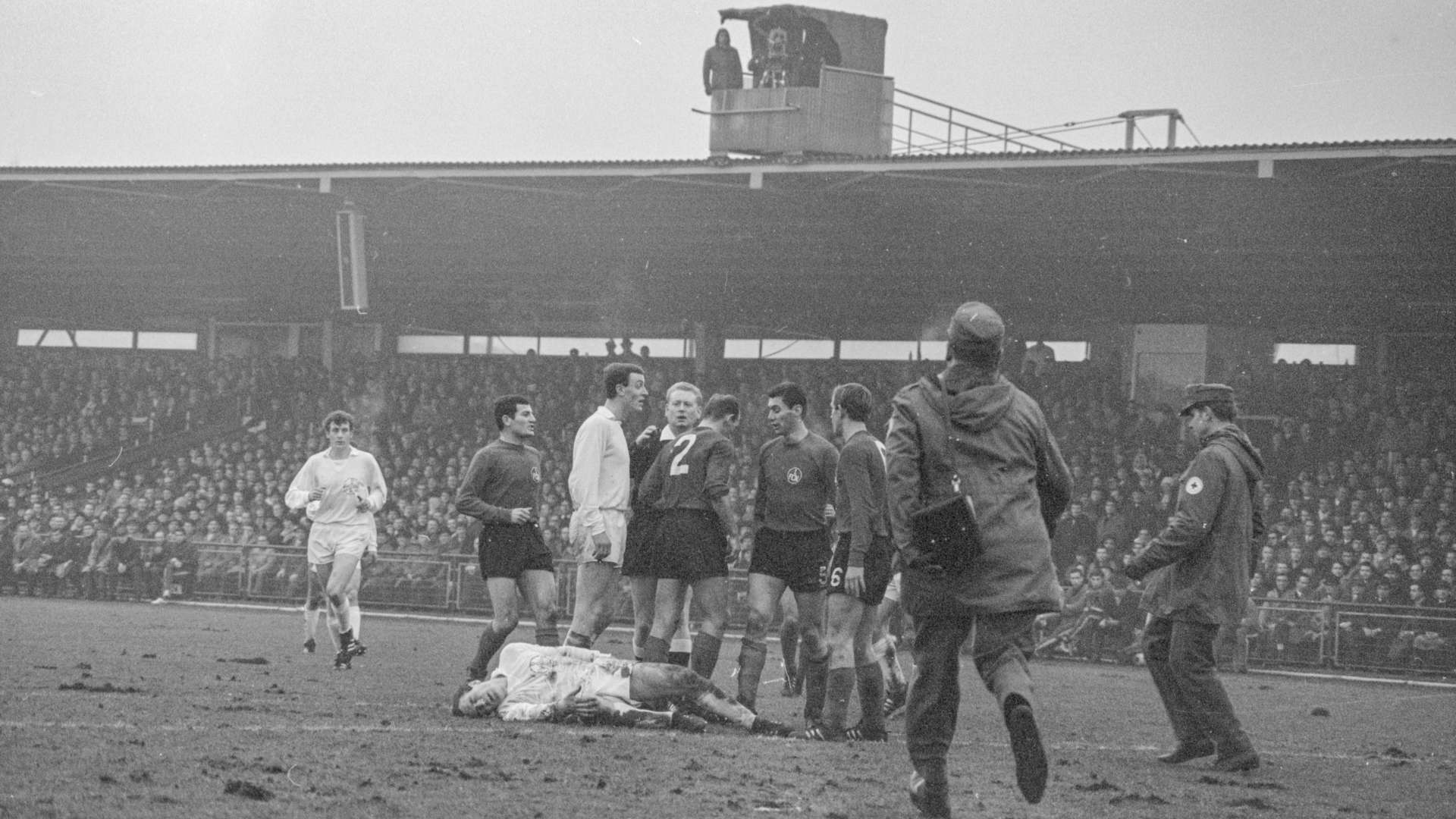
Saturday 27 January 1968 comes round. The eagerly-awaited game against the team from Franconia in Leverkusen kicks off at 14.00 CET in front of 15,000 spectators. On three minutes there is a setback: Helmut Brücken unluckily deflects a shot allowing the Nürnberg striker Heinz Strehl a simple tap-in to make it 1-0. But the Bayer team fight their way back into the game. A Richert header on the half-hour mark crashes against the post and other lesser chances are foiled by the Nürnberg keeper Roland Wabra. The Bundesliga league leaders are completely disappointing while the Werkself thrill their fans. The game is then settled on 83 minutes with a goal from a free kick by Gustl Starek. Bayer 04 Leverkusen pass the test for possible future Bundesliga fixtures. The team, fans and the police demonstrate their top-flight quality. The league leaders from the Regional League West can now completely focus on defending their lead at the top of the table after the exit from the DFB Cup.
Related News
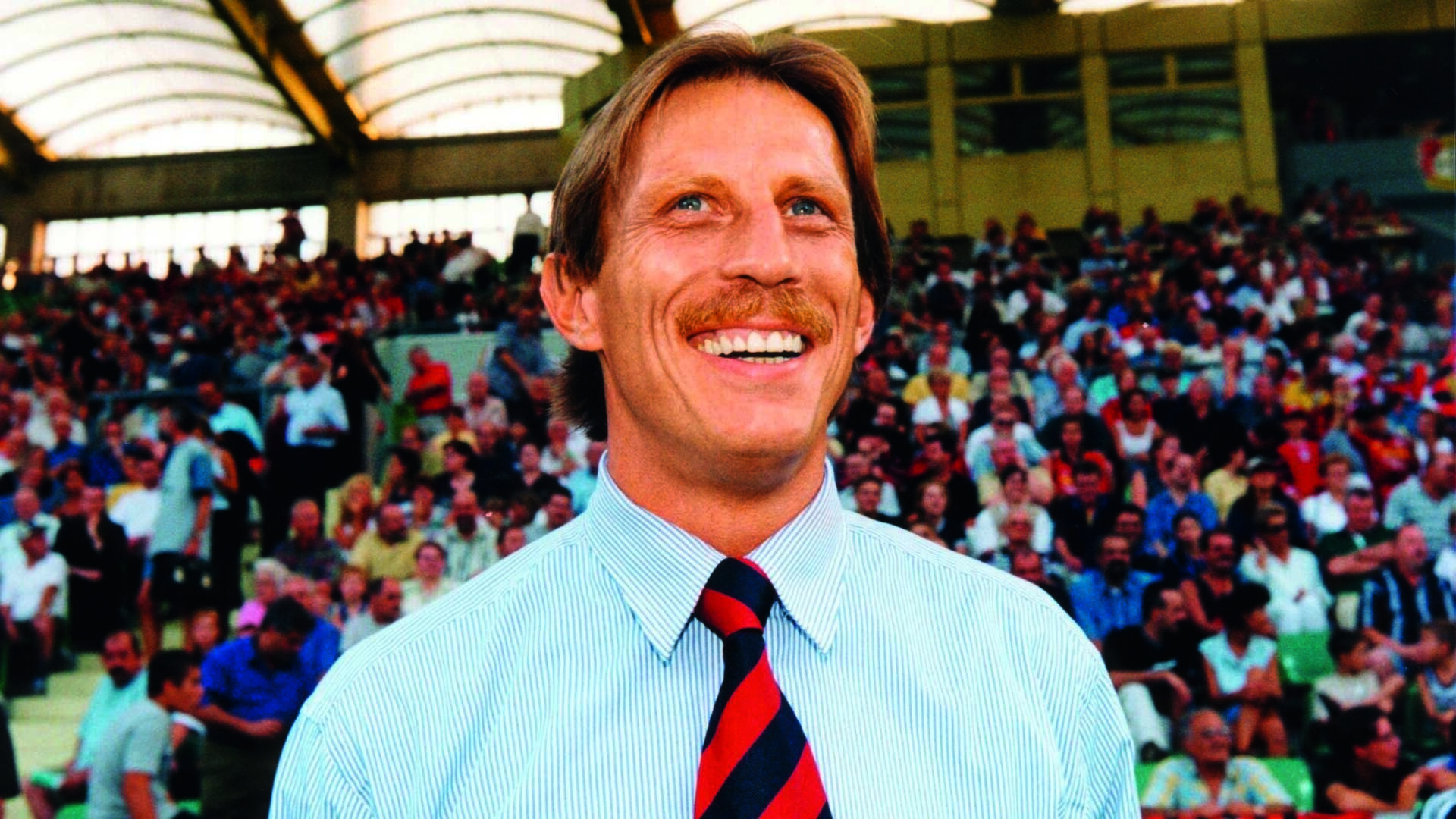
Legend: Christoph Daum - The man who taught us to want
Christoph Daum was born on 24 October 1953 in Zwickau. As a child, he moved to West Germany with his mother and grew up in Duisburg. He developed a great enthusiasm for football at an early age, even though it soon became clear that his future lay less on the pitch than on the sidelines. Even at a young age, his passion for analysing, explaining and improving things became apparent.
Show more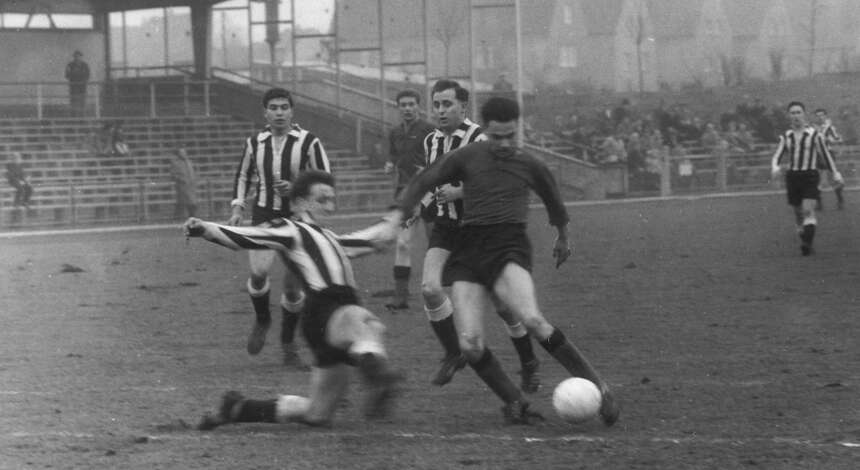
From the archives: 65 years ago - Another victory at last
When the Bayer 04 players celebrated Christmas in 1960, they spent the winter in second place in the Oberliga West 2 on 20 points - but already five points behind leaders Schwarz-Weiß Essen. However, coach Erich Garske's team are struggling to get back on track in the new year. A goalless draw against Bonner FV at home at the Ulrich Haberland Stadium was followed by a 2-1 away defeat in Erkenschwick. The following home game also yielded just one point. As a result, the team's promotion ambitions dwindled to a minimum, as the gap to the coveted spot has now grown to a challenging ten points.
Show more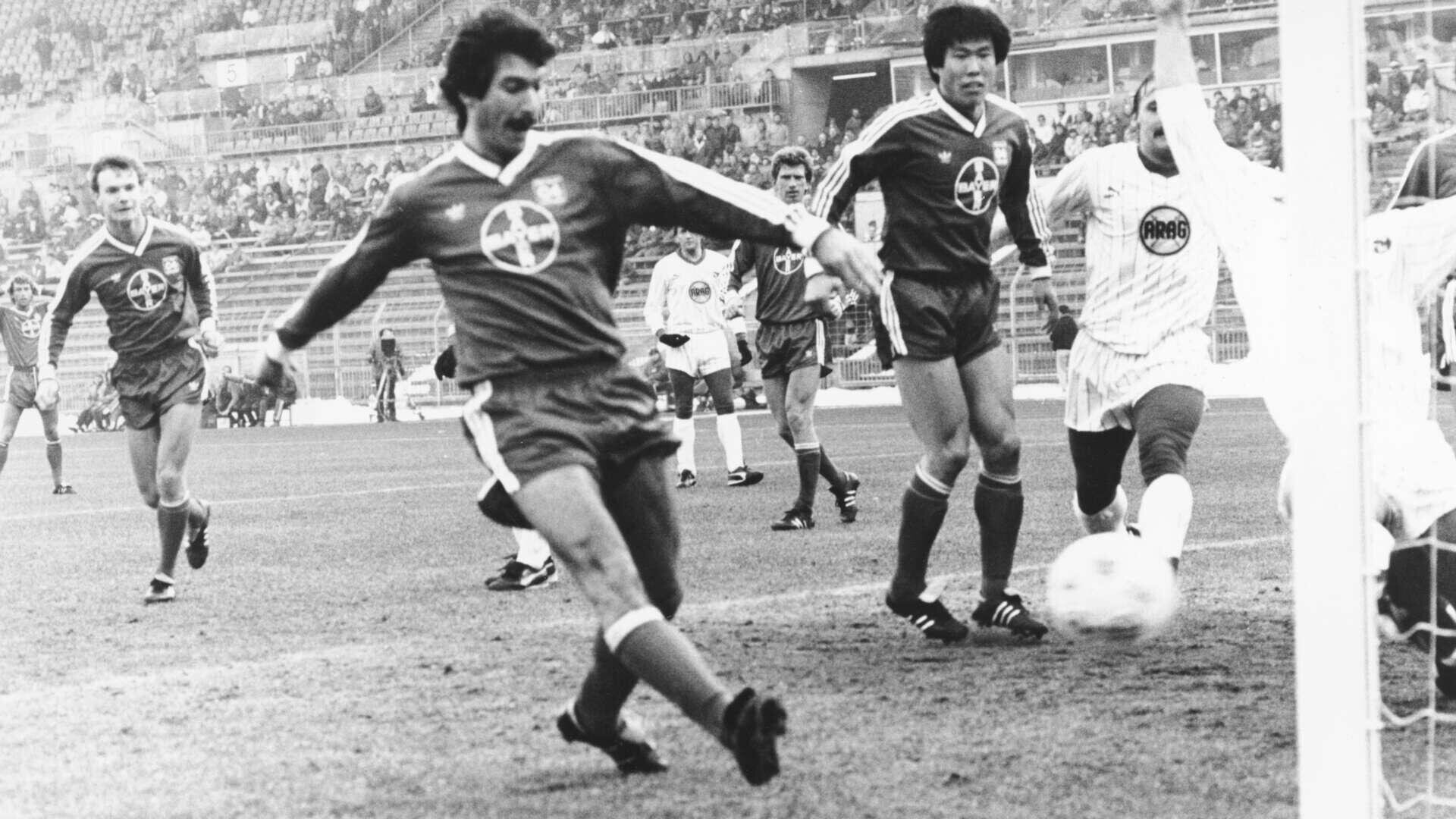
Goals of the month: From Waas to Tapsoba
In this video you can see impressive and important goals in Bayer 04 history from the month of February. It's not always about the beauty of the goals, but also a reminder of special games and players.
Show more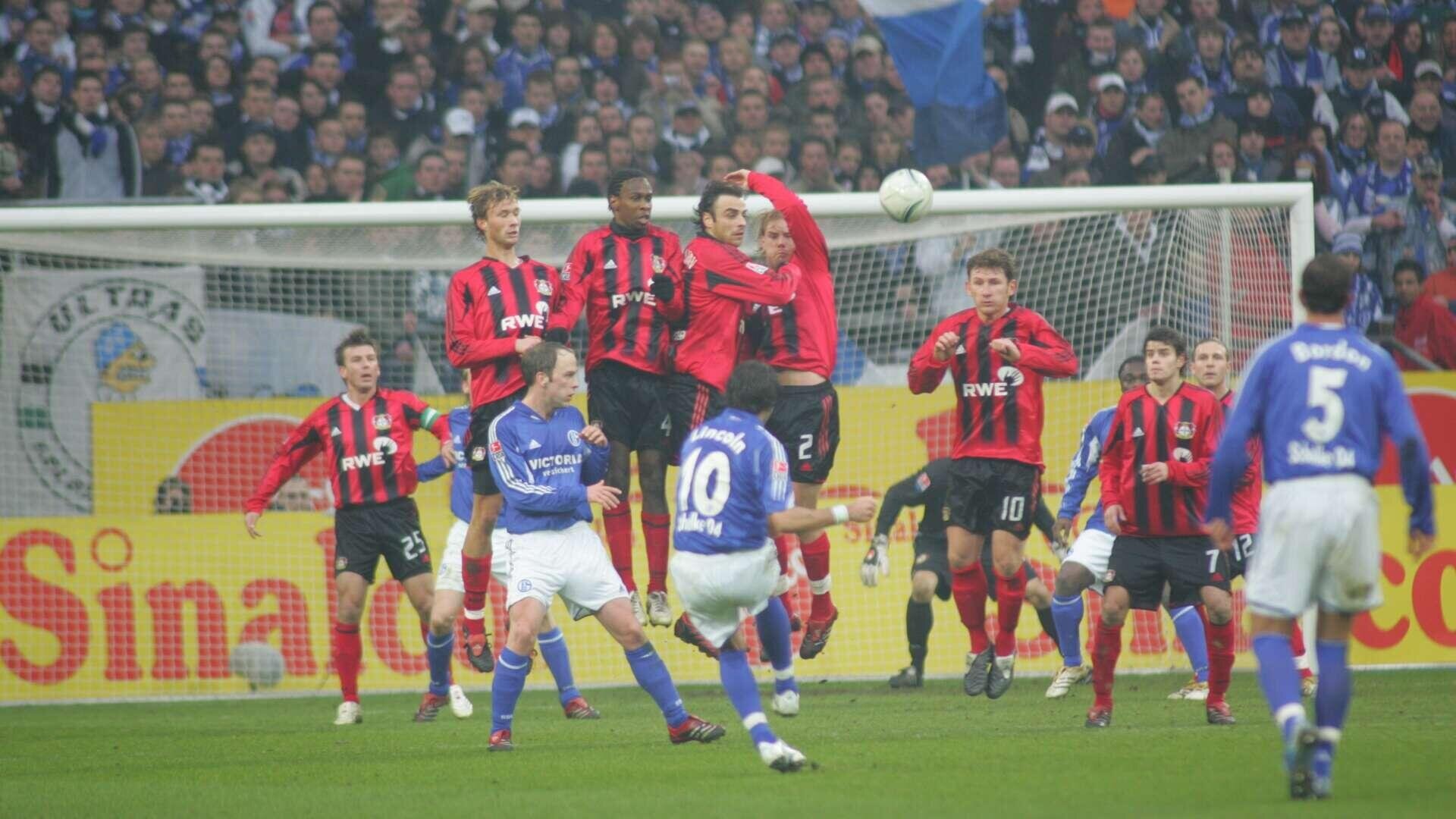
Match of the month: 20 years ago - A game of goals galore
It is 11 February 2006 and Schalke 04 and the Werkself kick off at 3.30 p.m. in a match that ends up being historic - at least from a Bayer 04 perspective.
Show more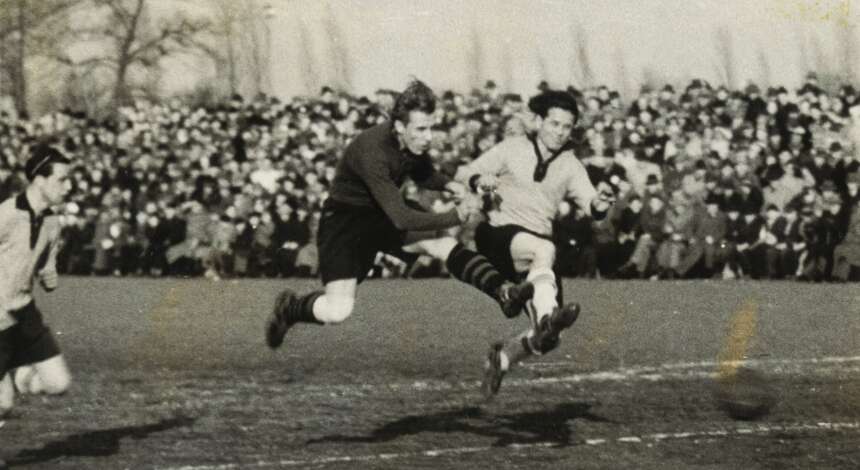
History: 75 years ago - The 1950/51 season (February)
As league leaders, the Werkself welcomed the relegation-threatened team from Rhenania Würselen. On 4 February 1951, 5,000 spectators line the touchlines despite the Sunday carnival parades. And they see a home team that is superior on the pitch. Without Theo Kirchberg, who was ill, and Emil Becks, who was suspended, the hosts attacked the opposing goal from the start. Battling against a strong wind in the first half, Bayer 04 created chance after chance, but were repeatedly thwarted by the Würselen goalkeeper. With the score at 0-0 at half-time, Karl Heinz Spikofski tried his luck on 55 minutes and hammered the ball into the opposition net from 20 metres out. Rhenania can no longer counterattack. The siege of the Würselen penalty area continued right to the end, but the game ended in a narrow 1-0 win.
Show more